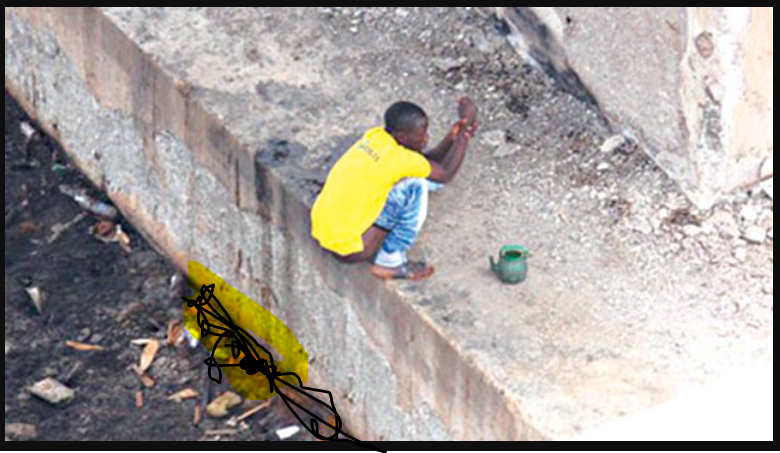
One more word on open defecation
Truth remains that enough can never be said about the menace of open defecation in Nigeria.
A recent UNICEF report reveals that Nigeria needs approximately 20 million toilets to eliminate open defecation, highlighting the country’s struggle to achieve Sustainable Development Goal 6.2 on universal access to sanitation by 2030. This alarming statistic underscores the urgent need for comprehensive action from federal and state governments, the private sector, and individuals to address this pressing issue.
Open defecation remains a widespread problem in Africa’s most populous nation, with about 48 million Nigerians – 23 percent of the population – still engaging in this unsanitary practice. The prevalence varies across regions, with the North-Central zone reporting the highest rate at 47 percent, while the North-West has the lowest at 11 percent. These figures, according to the 2021 WASHNORM report, place Nigeria second globally in open defecation prevalence, trailing only India.
The consequences of this public health crisis are severe. Health experts link open defecation to the spread of sanitation-related diseases, including several Neglected Tropical Diseases (NTDs) such as onchocerciasis, schistosomiasis, and soil-transmitted helminthiasis. These diseases perpetuate cycles of poverty, malnutrition, and ill health. UNICEF estimates that Nigeria loses an average of 150,000 children annually to diarrhoea, a problem exacerbated by poor toilet facilities and lack of sanitation.
Despite some progress, with 126 out of 774 local government areas declared open defecation-free, the overall situation remains dire. Jigawa stands out as the only state to have achieved open defecation-free status, while Katsina State has made significant strides with 27 of its 34 LGAs free from the practice.
The root causes of this issue are complex and intertwined. Poor urban planning, rural neglect, ignorance, and endemic poverty all contribute to the persistence of open defecation. From schools to university hostels, stadiums to public hospitals and motor parks, the lack of adequate toilet facilities or their poor maintenance continues to perpetuate this shameful practice.
The problem is particularly visible along major highways and in urban centers. Recently, the Lagos State Environmental Protection Agency and the Ogun State Environmental Protection Agency launched a campaign to ban open defecation on the Lagos-Ibadan Expressway. However, despite cleaning efforts, monitoring, and arrests of environmental violators, the practice continues to be an eyesore along the highway medians.
Addressing this challenge requires a multifaceted approach. Governments at all levels must invest in building more public toilets, incentivize toilet use, and continuously sensitize the public against open defecation. The private sector and religious centers can contribute by providing mobile toilets and other public facilities. Innovative solutions, such as processing waste into energy and developing public toilets that align with citizens’ lifestyles and social habits, should be explored.
UNICEF’s Chief of Water, Sanitation, and Hygiene, Jane Bevan, emphasizes the need for political will to tackle open defecation effectively. She stresses the importance of making hand washing a priority and turning these goals into reality.
As the 2030 deadline for achieving the Sustainable Development Goals approaches, Nigeria must accelerate its efforts to eradicate open defecation. This will require not only infrastructure development and policy implementation but also a significant shift in public awareness and behavior. After a period of sensitization and warnings, state authorities should consider stricter enforcement measures against open defecation.
CSR REPORTERS notes that it is only fair to address this critical sanitation issue. That way, Nigeria can improve public health, enhance environmental sustainability, and contribute to broader socio-economic development goals. The challenge is substantial, but with concerted efforts from all sectors of society, progress towards a cleaner, healthier Nigeria is possible.






